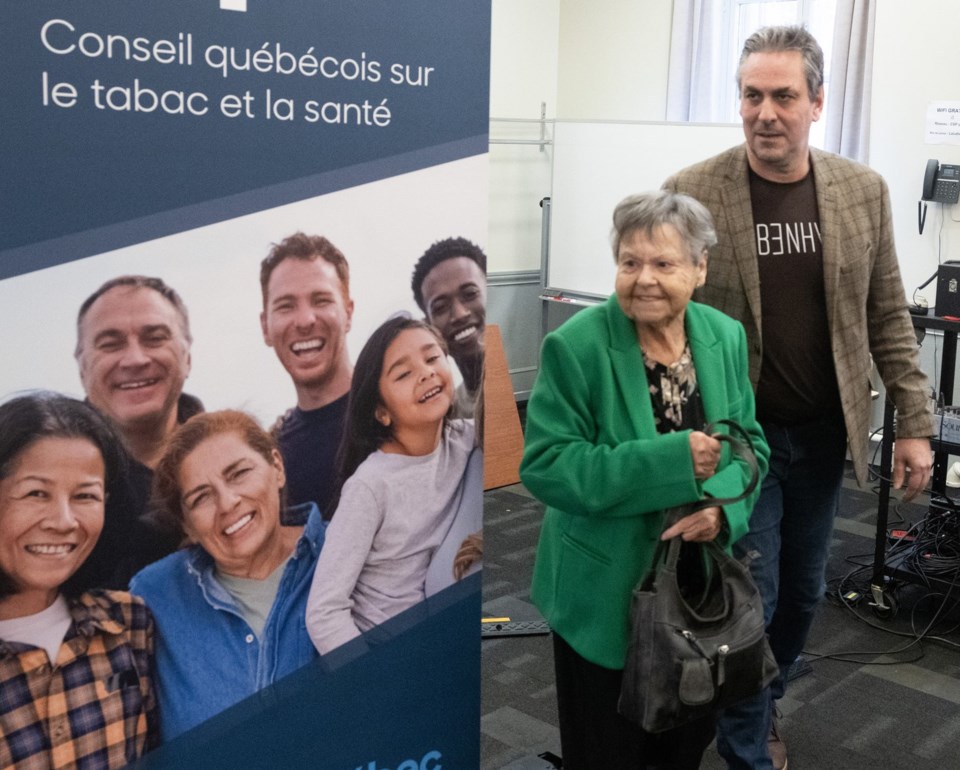MONTREAL — Three tobacco giants are set to pay out roughly $32.5 billion in a landmark deal that would settle decades of litigation with provinces and individual smokers and their families. The proposal, which involves JTI-Macdonald Corp., Rothmans, Benson & Hedges, and Imperial Tobacco Canada Ltd., is the result of a corporate restructuring process set off by a legal battle over the health effects of smoking.
Here are five things to know about the proposed plan of arrangement, which has yet to be approved by claimants and the court.
Where did this come from?
In 1998, British Columbia became the first province to sue tobacco companies to recover health-care costs. All other provinces have since followed suit. Separately that same year, two Quebec class-action lawsuits were filed seeking damages for roughly 100,000 victims of lung and throat cancer and emphysema.
A 2015 Quebec Superior Court decision ordered the three companies to pay $15.6 billion in damages. The companies lost an appeal in Quebec in 2019, prompting all three to seek creditor protection in Ontario.
The newly proposed plan, filed in an Ontario court on Thursday, is the product of five years of mediation.
Where will the money go?
The $32.5-billion proposal includes roughly $24.8 billion for health-care systems in the provinces and territories. A further $4.2 billion would go to smokers and their families who are plaintiffs in the two Quebec class-action lawsuits, and $2.5 billion would go to smokers in other provinces. Another $1 billion would go to a national foundation to fight tobacco-related diseases.
Who is eligible?
It's unclear how many people might make claims, though there could be 100,000 eligible Quebecers. The Quebec lawsuits involved smokers who took up the habit between 1950 and 1998. They could receive up to $100,000 each.
Smokers in the rest of Canada are eligible if they were diagnosed with smoking-related diseases between March 2015 and March 2019, and could receive up to $60,000 each.
When could the money flow?
Claimants will have to approve the plan at meetings in December, after which it will be presented to the court. Lawyers are hopeful payments will start in early 2025.
The companies would pay out $12.5 billion up front, including $6.3 billion for provinces and territories and $4.75 billion for individuals.
After that, they would have to pay 85 per cent of their net after-tax income for each of the first five years, and lesser amounts after that until the full $32.5 billion is paid out. Lawyers estimate most of the funds will be paid in the first five years.
What happens to the companies?
The proposed plan does not include an apology, though Michael Peerless, one of the lawyers representing a consortium of provinces and territories, said the amount of money "shows that the companies have taken responsibility, whether or not they're going to say they take responsibility."
If the plan is approved, the tobacco giants will continue to operate. "All tobacco-related litigation against these companies will be ended across the country, for everyone, forever," Peerless said.
But lawyers for the provinces said the plan is fair. "It should not be lost on anyone that $32.5 billion is not business as usual," said lawyer Preet Gill.
This report by The Canadian Press was first published Oct. 18, 2024.
Maura Forrest, The Canadian Press




